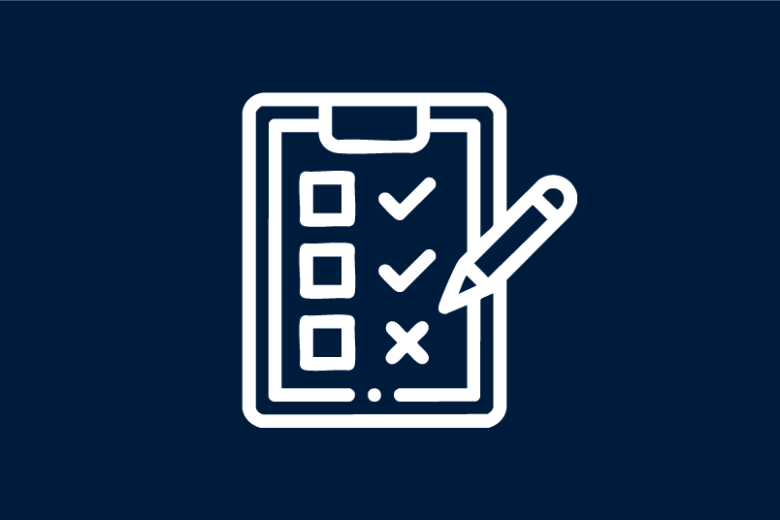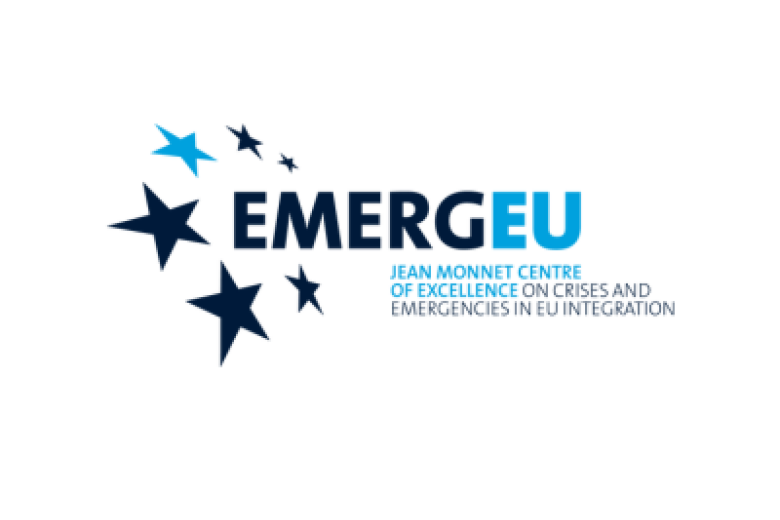Organisation

Constructive alignment

Communication

Organisation
MSP symposium
All presentations and posters should be prepared considering that the audience are not experts on the field! Make sure that you motivate your study well and that all details are well explained!
Note that the attendance of all group members during the time slot of the poster or the presentation is mandatory!
- The MSP Project Symposium takes place on the Friday of week 3
- At the symposium, all groups present their findings as an in-person scientific poster (1000-level) or presentation (2/3000-level).
- Start and closing times will be announced two days before the symposium at the latest
- For the 1000-level projects:
- The posters will be displayed all day at PHS1
- Groups should make sure that their poster is hanging in the appropriate spot by the start of the Symposium
- There should always be somebody at your poster, ready to talk about the science, at all times between start and closing (you will want to prep this talk a little bit).
- Every group member should spend some time at the poster during the Symposium (mandatory attendance), so take turns and schedule who is going to be there and when.
- For the 2000- and 3000-level projects
- The presentations are given in the rooms of PHS1
- Groups should make sure that you have a working computer with the slides ready to be presented at the designated time
- The time allocated is 20’ in total:
- 15’ max for the presentation
- 5’ for questions
- The groups should decide on the presenter and the format of the presentation
Information about the posters
- PDF format
- A0 size
- portrait mode (NOT landscape!)
- named after your project group's title and group number e.g. 123 - Title of your project (shortened if needed).pdf
- to be sent to the project committee by 15:00 on the Wednesday of Week 3
Information about the presentations
- Prepared for your peers and for a general audience and not only for specialists in your project’s field
- You should try to communicate the main scientific context, methods, and findings of your project in a way that is accessible to non-experts, without sacrificing rigour and essential details.
- PDF, powerpoint, keynote
- The file should be sent to the project committee by 18:00 on Thursday of Week 3 (the day before the symposium) named after your project group's title and group number e.g. 345 - Title of your project (shortened if needed).pptx
- Aim for max 15’ of presentation and 5’ for questions
- Use your own laptops to project
- All students in the group should be in attendance and contribute to answering the questions, but only two-three students will present the work.
Group meetings
Preparatory meetings
- These happen before the relevant project period starts i.e. during P2 or P5
- Students and supervisors are expected to meet between one and three times to discuss
- the direction of the project,
- start collecting and sharing relevant (bibliographic) resources,
- ordering necessary material and supplies,
- decide on the preferred communication and sharing tools (group chat, shared folders etc)
- For the 2000- and 3000-level, these meetings should also include
- time dedicated to conduct background research,
- design the methods and experimental design for the project,
- draft the methods section (to be submitted before the end of P2/P5)
- The 2000-level groups can also start working on their annotated bibliographies
Project period meetings
- The supervisor and the students are expected to meet regularly during the project period to
- discuss the progress of the project
- set short term goals and milestones
- discuss and solve issues
- The frequency, the time and the place of these meetings will be determined by all the stakeholders
- The supervisor and the students are expected to proactively book meeting rooms e.g. at PHS
- The first meeting during the project period is mandatory for everybody
Peer review meetings
- The groups will meet twice for peer review sessions in meetings that are organised by the individual project group
- These peer review sessions will be scheduled on
- Tue/Wed/Thu of week 2 (not mandatory to be held - supervisor&group decides)
- Tue/Wed/Thu of week 3 (mandatory)
- The goal of the first peer review session is to readjust and recalibrate expectations, expose potential issues that can be addressed in time or reassure that everything goes according to plan. This meeting is not mandatory and its scheduling is left at the discretion of the supervisor and the group.
- During the second peer review session students and supervisors discuss the grades that each student received for their contribution
- Attending the peer review sessions is mandatory!
- If you miss the peer review session, you get a 0.0 for your peer review grade.
- Missed attendance cannot be made up for with an additional assignment
- The project committee maintains the right to make exceptions for students with documented family emergencies and documented serious and immediate health issues such as hospitalization.
Presentation rehearsal neeting
- In preparation for the symposium, the groups are expected to meet up with the supervisor and have a rehearsal of their presentations for 2000- and 3000-level projects
- This should be preferably done the day before the symposium and the organisation of this meeting is the responsibility of the students and the supervisor
Lab safety and lab departure form
- All students involved in projects, whether in the lab, field, or tutorial rooms must view the safety presentation and take the safety quiz on Canvas before beginning work in the project period.
- Lab safety is a paramount responsibility in our programme and it is important to have a periodic reminder of proper safety procedures.
- Project supervisors are to assure that students assigned to their projects have passed the safety quiz with a score of at least 12/17 by 23:59 on the Wednesday of the first week of projects.
Lab assistant
When students are working in the labs at DUB30, there should always be a lab assistant present (this is a legal requirement). Note that occasionally a MSP lecturer can be present in the lab as a lab assistant.
The lab assistant’s responsibility is to make sure that the safety rules at DUB30 are followed.
Lab departure form
After the end of project period, students are also expected to
- clean up their workspaces in the labs,
- appropriately dispose of biological, chemical and/or otherwise hazardous materials, and
- return all equipment to the dedicated storage spaces.
- Fill a Lab Departure Form (which will be made available on Canvas) which needs to be signed off by the lab coordinators (Kathia Jimenez Monroy and Joeri Noordijk) by 17:00 on Thursday of week 3. Failure to receive a positive sign-off and/or leaving the lab in poor conditions may result in deductions to the final grade at the discretion of the supervisor and in consultation with the lab coordinators and the project committee.
Purchases and financial aspects
- The supervisors or/and the SLP leaders are expected to submit a budget table, summarising the material that need to be ordered for each project a month before the project period starts
- For every item you should provide a cost estimate and a justification
- This needs to be done one month before the start of the project period
- The project committee together with the MSP management will evaluate the submitted document and either
- directly approve the expenses
- or request for adjustments
- Only after the official approval is given by the project committee can the purchases proceed
- The purchases are done by the supervisor who needs to submit the receipts to get reimbursed
Attendance requirements
The project period has several meetings with mandatory attendance:
- The opening meeting with your group
- The peer review sessions
- Your time slot on the day of the MSP Project Symposium
If you miss or show up late for any of these group events you are considered to have failed attendance for the project period. You can, however, still pass the project if you make up for your absence through an additional assignment.
- You will need to request an additional assignment from the project committee through OSA.
- OSA must receive this request within 10 working days after the infraction.
- The project committee will decide if you are to be given an additional assignment or not.
- Note that an additional assignment will only be granted after the first time only to students who missed or were late for one of these events.
- Repeat offenders will fail without recourse.
In addition to the mandatory meetings, students are expected to be present on the days they have agreed with their supervisor and peers:
- a few preparatory meetings during the periods preceding project period and
- three-four days per week either in the lab/field or meeting in a tutorial room with their group, but may be different depending on the project and where it takes place.
Project supervisors have the discretion to
- set attendance requirements for their projects
- they also maintain the right to fail a student if the student’s attendance during the project period is deemed insufficient.
It may be possible to make up for missed days by means of an additional assignment, for example if you missed days because of illness or a family emergency. You will have to request an additional assignment from your supervisor within 10 working days after completion of the project. Your supervisor decides if you are given an additional assignment or not.
Deliverables
Preparatory assignments
- Draft of annotated bibliography (for 2000-level projects)
- between 5 to 7 unique, peer-reviewed sources in a consistent style (APA 7 unless otherwise stated)
- they should include a short summary of the text (2-5 sentences) and
- statements that indicate the relevance of the source to the group’s project (1-3 sentences)
- to be uploaded on Canvas by the end of P2/P5 for the supervisor to comment (exact date will be posted on Canvas)
- Draft of methods section (for 2000/3000-level projects)
- a first version of the section that describes the methods that the project will follow
- to be uploaded on Canvas by the end of P2/P5 for the supervisor to comment (exact date will be posted on Canvas)
Reports
- Abstract (1000-level)
- Summary of the project within 200-300 words, consisting of
- motivation and introduction of the project
- its context/significance,
- the methods,
- the results
- the main conclusions and takeaways
- Summary of the project within 200-300 words, consisting of
- Methods and results (2000-level)
- a coherent document of 2500-4000 words (unless otherwise indicated by the supervisor)
- written as if they are part of a larger research paper
- clear, succinct presentations of the facts without the need for interpretation
- Full report (3000-level)
- report should be 4000-7000 words excluding references and should consist of
- General introduction (main research questions and objectives)
- Experimental section (materials & methods)
- Results section
- Discussion
- report should be 4000-7000 words excluding references and should consist of
Posters (1000-level)
- Presented at the MSP Symposium
- PDF format
- A0 size
- portrait mode (NOT landscape!)
- named after your project group's title and group number e.g. ****123 - Title of your project (shortened if needed).pdf
Presentations (2000/3000-level)
- Presented at the MSP Symposium
- PDF or PPTX format
- named after your project group's title and group number e.g. ****345 - Title of your project (shortened if needed).pptx
Important dates
- Budget table
- submitted to the project committee a month before the project period starts
- Preparatory meetings
- one or two during P2 or P5
- Draft of methods & annotated bibliography
- End of P2 or P5
- Start of project period
- First day of P3 or P6
- Peer review/self-evaluation grades
- submitted online by 17:00 on the final Monday of the project period
- Writing assignments (abstracts and full reports) submission deadline
- by 17:00 Wednesday of week 3 (the final Wednesday of project period)
- Lab Departure Form
- to be filled by the groups and needs to be signed off by the lab coordinators (Kathia Jimenez Monroy and Joeri Noordijk) by 17:00 on Thursday of week 3
- Poster printing
- Please email your poster to the project committee by 15:00 on the Tuesday of Week 3 named after your project group's title and group number e.g. 123 - Title of your project (shortened if needed).pdf
- Presentation
- The file should be sent to the project committee by 18:00 on Thursday of Week 3 (the day before the symposium) named after your project group's title and group number e.g. 345 - Title of your project (shortened if needed).pptx
- Appeal of grades
- not later than six weeks after the grades become available
Project period timeline
Below you can find the indicative timeline during the project periods that take place during P3 and P6 of each academic year. Note however that the groups are expected to schedule the preparatory meetings either in P2 or in P5.
Week 1
- Monday: Mandatory opening meeting with your group and supervisor(s)
- Monday-Friday: Research
Week 2
- Monday-Friday: Research
- Tuesday: mid-term peer-review meeting
- Friday: Peer- and self-evaluation online forms available
Week 3
- Monday: Research
- Peer- and Self-evaluations online forms due at 17:00
- Tuesday: Last day of research/Lab clean-up
- Posters due at 12:00 midday
- Wednesday: Presentation preparation
- Abstracts due at 12:00 midday
- Thursday: Presentation rehearsal, sending & paper submission
- Papers due at 12:00 midday
- Lab departure forms due at 17:00
- Presentation to be sent to the project committee by 18:00
- Friday: Symposium
Constructive alignment
List of ILOs
ILOs for 1000-level projects
- Present outcomes in form of poster
- Learn how set research goals and how to formulate a hypothesis
- Present elements of a full research report (Intro-M&M-Results-Discussion) in a poster format
- Write a scientific abstract
- Learn how to define boundaries of research project
- Connect research plan to literature
- Understand how to plan a simple, pre-protocolised research project/ability to manage a project in all its forms (e.g. use of resources, recording of data, time management)
- Apply data-presentation skills learned in CORE (graphing etc.)
- Work as a member of a diverse, multidisciplinary research team
- Learn how to give and receive feedback on own performance
- Ability to interact and communicate with other people involved in the project as well as with supervisors and researchers etc.
- Run a simple, pre-protocolised experiment
- Trouble-shoot problems in the lab
- Ability to work in a safe manner, be familiar with health and safety regulations in place
- Ability to plan the research realistically (manage expectations)
- Learning to work independently
- Acquire skills related to particular area of the natural sciences
- Be aware of the ethical issues surrounding the project (e.g. animal use, plagiarism, data massage, permits, etc.)
- Data quality (how to generate data, how to store it, where to store it, ownership, etc.)
ILOs for 2000-level projects
- Every 1000-level ILO
- Present research outcomes as an 13 - 15 minute talk, and answer questions for remaining time (20 minutes total)
- Critically reflect on peer reviewed sources and their relevance for research projects
- Develop and write clear, coherent, and concise Methods and Results sections for a research paper
- Foresee future problems, needs and changes
- Ability to work in a safe manner, be familiar with health and safety regulations in place
- Ability to plan the research coherently and realistically
- Able to work relatively independently and learn how to take initiative
ILOs for 3000-level projects
- Every 1000- and 2000-level ILO
- Anticipate future problems, needs and changes
- Write a complete research paper that presents a scientific project
- Come up with creative solutions to solve research problems
- Ability to plan the research coherently, flexibly, and realistically
- Show high level of independence and initiative
- Take bold actions by venturing into unknown areas of science
Assessment criteria
Assessment for 1000-level projects
- Individual grades focus on performance of each group member
- Self-evaluation (5%)
- Peer review grades (20%)
- Supervisor grade (20%)
- Group grades focus on reporting
- Abstract (10%)
- Poster presentation (45%)
Assessment for 2000-level projects
- Individual grades focus on performance of each group member
- Self-evaluation (5%)
- Peer review grades (20%)
- Supervisor grade (20%)
- Group grades focus on reporting
- Abstract (5%)
- Methods and Results (20%)
- Annotated Bibliography (10%)
- Presentation (20%)
Assessment for 3000-level projects
- Individual grades focus on performance of each group member
- Self-evaluation (5%)
- Peer review grades (20%)
- Supervisor grade (20%)
- Group grades focus on reporting
- Full paper (35%)
- Presentation (20%)
Syllabus
The syllabus for the relevant project period can be found on Canvas.
You can find here the version for the project period of P6 of the academic year 2024-2025
Communication
General questions
How can I get in touch with the Project Committee?
You can reach out to the Project Committee by sending a mail to msp-projects@maastrichtuniversity.nl
Who are the members of the Project Committee?
| Dr. Panos Christakoglou (MSP) | Office: B2.024 |
| Dr. Kyle Jazwa (MSP) | Office: B2.018 |
| Dr. Phil Klahs (MSP) | Office: B2.008 |
| Dr. Lorenzo Reverberi (MSP) | Office: B2.008 |
| Heather Obmann (MSP) | (OSA representative) |
Who can be the project supervisors?
Project supervisors can be MSP staff, other UM staff or people at companies and other organisations. Note that each project has at least one supervisor
How many weeks does a project period last?
A project period lasts for three weeks and takes place twice per academic year, namely in P3 and P6.
When are the final presentations given? What about the posters?
Both presentations and posters are presented at the MSP Symposium that takes place on Friday of the third week of the project period.
Students
What are the responsibilities of the students?
The students taking part in the project period are expected to
- meet the attendance requirements
- contribute to the project to the best of their ability
- be familiar with lab safety
- be familiar with the syllabus
In addition to the previous the students are also expected to
- demonstrate collaborative behavior both towards their peers but also towards the supervisors
- check their UM email and student portal regularly for updates from the project committee
- take responsibility for cleaning up the rooms and common spaces after each meeting
- take responsibility for cleaning up the rooms and common spaces after the symposium
Who can I contact in case I experience uncomfortable situations during the project period?
For cases that you deem that can not be dealt internally within the group then feel free to reach out to the project supervisor, to the project committee, to the student advisor.
Can I get a resit?
You may be eligible for a resit only if you fail the project and at the project supervisor’s discretion. In order to be eligible for a resit, a student must have:
- Made reasonable attempts at communicating with your group and the supervisor during the course of the project (either by attending meetings or consistent emails)
- Made a fair attempt to fulfill all requirements of the assessment.
Note that any practical resit will occur in the week following the end of the project period.
Can I appeal a grade?
This can be done for the case of a supervisor grade by writing an email to their supervisor critically reflecting on their performance during the project period and laying out their reasons for believing their grade should be higher. In appealing a grade a student accepts that their grade can go down as well as up, including for wasting a supervisor’s time on a meritless appeal. Please note that according to the Rules and Regulations, you have the right to appeal a decision made by an examiner or the Examination Committee within six weeks of its announcement.
Supervisors and SLP leaders
What are the responsibilities of a project supervisor?
The project supervisors are responsible
- for writing the project description
- for purchasing what needs to be bought for the project
- for coordinating with each other on which days students will be at PHS1/DUB30
- for the requirements and reservation of room-space at PHS1 or lab-space at DUB30.
Note that in student-led projects (SLPs) the student leaders are responsible for the items mentioned above, in consultation and agreement with the project supervisor(s).
During project period the supervisors are expected to
- guide students in their project,
- organise (mandatory) meetings (see attendance requirements)
- take attendance for these, and communicate to the Project Committee any absence
- communicate clearly the expected deliverables, the agreements and the milestones,
- remind the students about the deadlines and the deliverables,
- grade the project report and give individual supervisor grades,
- plan and moderate the final peer-review session in week 3, and possibly an intermediate peer-review session roughly mid-way through the project
- organise, together with the group, a meeting the day before the symposium where the presentation will be rehearsed
- send the final grades to the project committee
- any additional assignment from students that did not meet the attendance requirements during the project.


